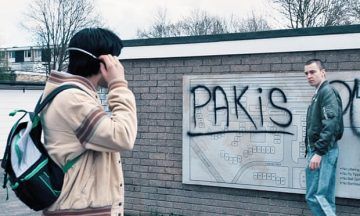Sarfaraz Manzoor in The Guardian:
 Boris Johnson was still a backbench Conservative MP and Donald Trump was a property developer and reality television star in the summer that Greetings from Bury Park was published. It was June 2007. I was 36, a journalist and broadcaster living in London. The world I worked in was white, middle-class and metropolitan – a long way from the world in which I had been raised. I had grown up in Luton, the working-class son of Pakistani parents. My father arrived in Britain in 1963 and my mother followed 11 years later with their three children. I was almost three years old. Bury Park was the Asian district of Luton, and my father worked on the production line at the Vauxhall car factory while my mother was a seamstress at home. My childhood was defined by a lack of money and a vivid awareness that my future was limited by my class and my colour. When I managed to get to university and build a career in the media, it became apparent that what I had considered an ordinary upbringing was very different from those of the people I worked among.
Boris Johnson was still a backbench Conservative MP and Donald Trump was a property developer and reality television star in the summer that Greetings from Bury Park was published. It was June 2007. I was 36, a journalist and broadcaster living in London. The world I worked in was white, middle-class and metropolitan – a long way from the world in which I had been raised. I had grown up in Luton, the working-class son of Pakistani parents. My father arrived in Britain in 1963 and my mother followed 11 years later with their three children. I was almost three years old. Bury Park was the Asian district of Luton, and my father worked on the production line at the Vauxhall car factory while my mother was a seamstress at home. My childhood was defined by a lack of money and a vivid awareness that my future was limited by my class and my colour. When I managed to get to university and build a career in the media, it became apparent that what I had considered an ordinary upbringing was very different from those of the people I worked among.
It was also striking that I never saw lives like mine depicted in popular culture or in books. Working-class lives, Muslim lives, lives defined by their apparent ordinariness. When I started working on a memoir, I did so with the ambition of opening up the world in which I had been raised. I pictured my mother, Rasool Bibi, walking along a street in Bury Park in her traditional shalwar kameez. What would a white person, someone who could not speak Urdu, think of her? What questions would they wish to ask her if they could? I set about writing my book with the hope that by writing very specifically I might tell a more universal story. Perhaps it was possible that sharing my family’s history would help to normalise this immigrant tale, and confirm that stories like ours belonged within the larger narrative of British history.
More here.
